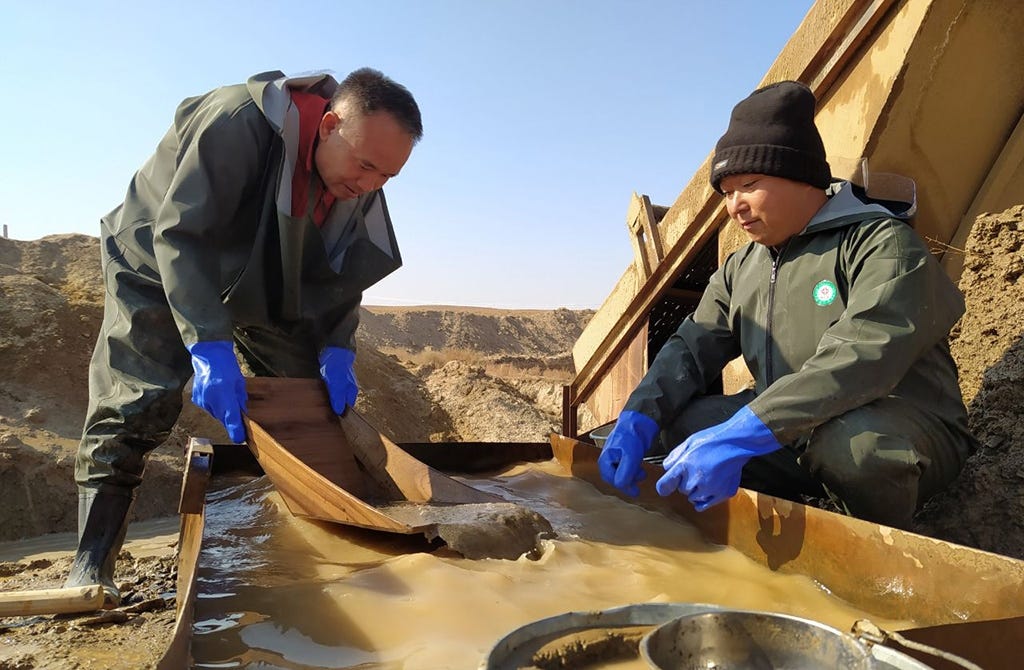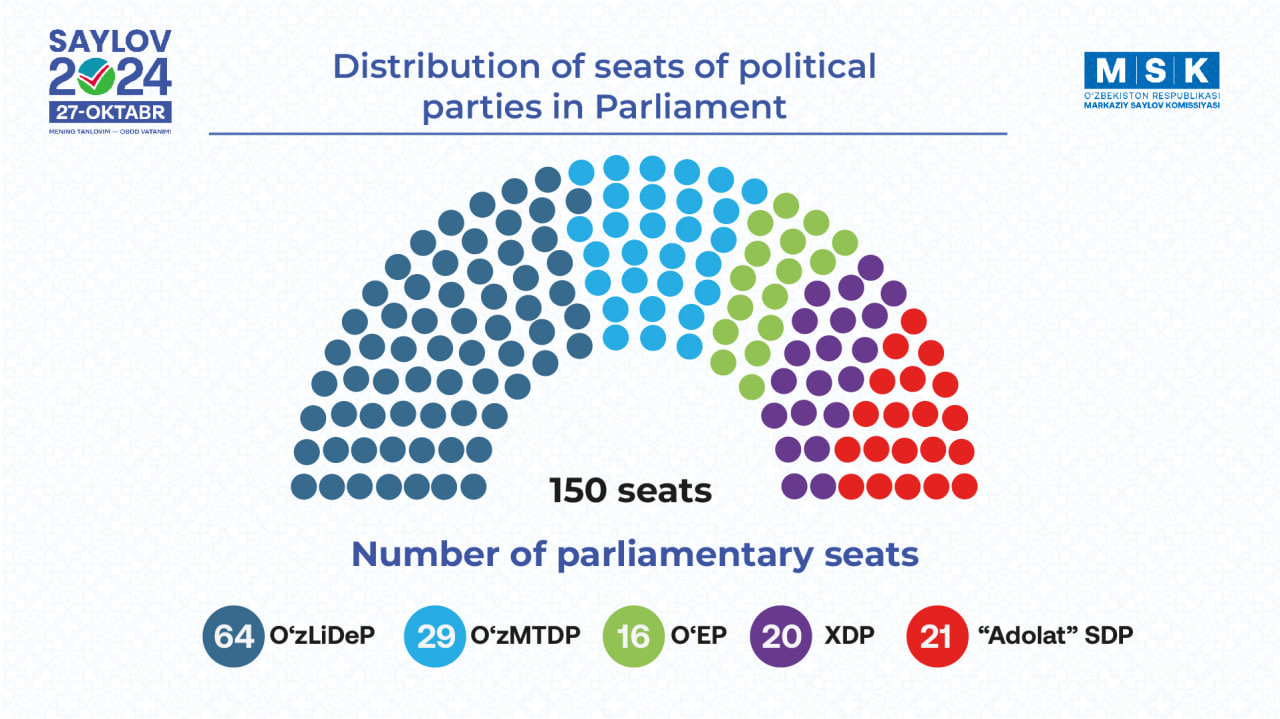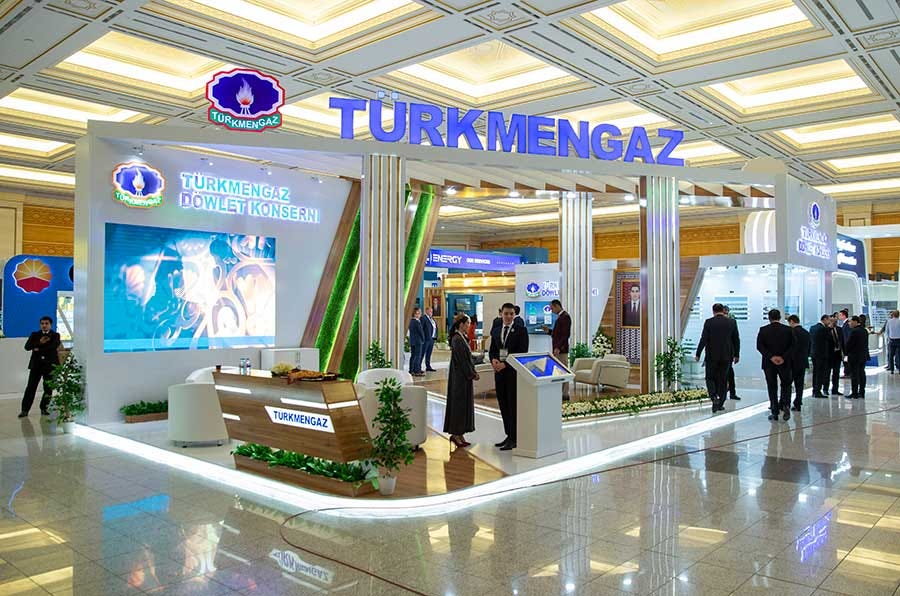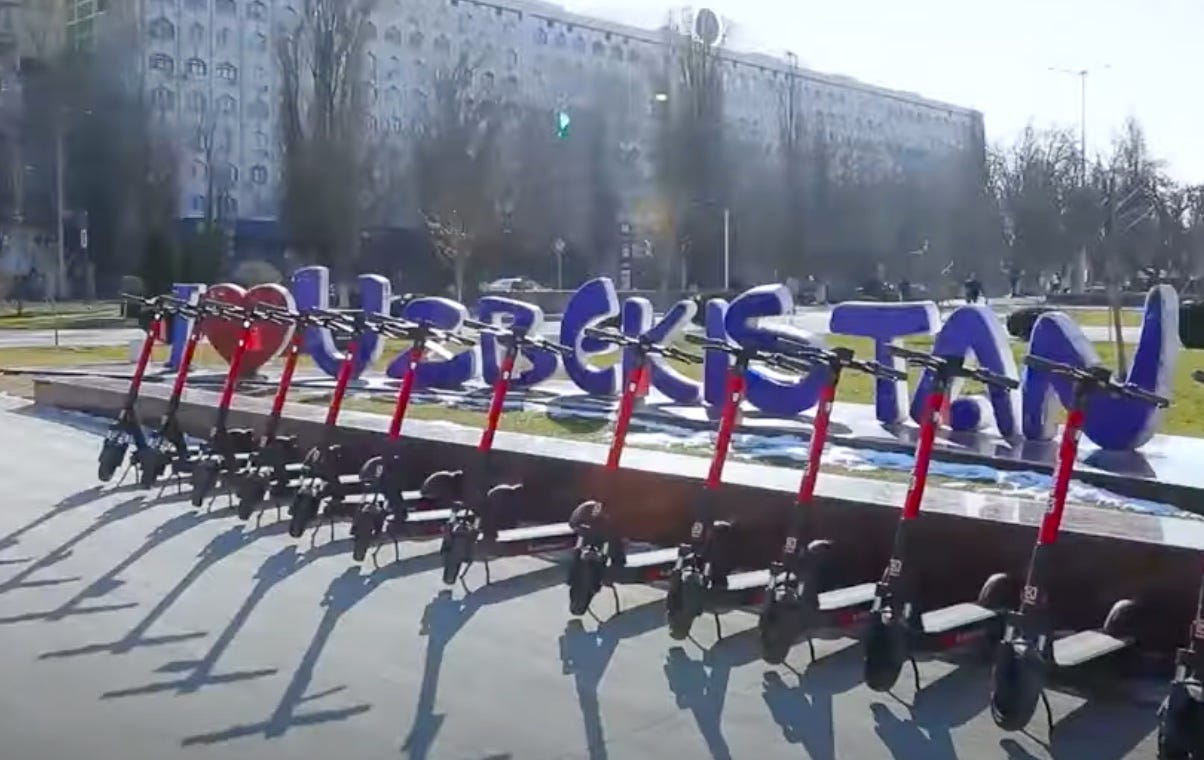Central Asia's week that was #28
Uzbekistan's lacklustre election, an assassination attempt, and Turkmenistan slashes methane emissions. Also, illegal miners face stiffer punishments, Caspian seal die-off, and anthem rewrite.
So this happened…
A low-energy parliamentary election campaign in Uzbekistan ended with the ruling Liberal Democratic Party (UzLiDeP) winning 64 out of the 150 seats up for grabs in the lower house of the legislature. That cements UzLiDeP’s dominance in parliament. The party had 43 seats in the previous legislature. The mixed electoral system, used for the first time in this election, allocated 75 seats based on proportional representation and another 75 through single-mandate districts. The strongest performer among the other four pro-government parties elected to parliament was Milliy Tiklanish, which bills itself a defender of traditional values. It won 29 seats. Western vote observers said the election was held in a technically competent manner, but that Uzbekistan’s “political environment [remains] constrained” and does not provide voters with a genuine choice.
Assailants fired shots at a Range Rover carrying a former senior official in Uzbekistan’s presidential administration, triggering fresh speculation about infighting among the country’s political elite. Komil Allamjonov, 40, served as head of the information policy department in President Shavkat Mirziyoyev’s office until his dismissal in September. He is known to be a close ally of Mirziyoyev’s daughter, Saida, who has assumed an increasingly prominent role in public life in recent years. None of the passengers in the Range Rover were harmed. The authorities initially detained one suspect and subsequently arrested three more individuals suspected of involvement in the attack on Allamjonov.
Turkmenistan reduced its methane emissions by 10 percent in 2023, as compared to 2020, Maksat Babayev, the chairman of state natural gas company Turkmengaz, told an energy conference. Babayev said that despite a brief spike in 2021, methane emissions have been declining steadily, even as oil and gas production increases. The figures cited by Babayev chime with those produced by Kayrros, an environmental monitoring firm that last year drew the international public’s attention to enormous methane leaks in Turkmenistan. The company said that what Turkmenistan achieved in 2023 represented “a slightly steeper reduction than the 9 percent notional cut required in a linear progression towards 2030 targets” required under the terms of the Global Methane Pledge, which Ashgabat signed up to in December.
Russia stopped importing natural gas from Turkmenistan at the end of June after the two sides failed to reach a pricing agreement, Turkmengaz chairman Maksat Babayev said at an energy conference in Ashgabat. Under the terms of a five-year contract reached in 2019, Turkmenistan committed to delivering up to 5.5 billion cubic meters of gas annually to Russia’s Gazprom. Babayev indicated that discussions are ongoing and that exports could resume if favourable terms are reached. He also noted that Kazakhstan has shown interest in purchasing Turkmen gas. Turkmengaz and Kazakhstan’s state-run gas company, QazaqGaz, signed a strategic cooperation agreement in the gas sector during a visit to Turkmenistan by Kazakh President Kassym-Jomart Tokayev earlier this month.
Authorities in Kazakhstan have proposed extending a ban on exporting a range of petroleum products outside the Russia-dominated Eurasian Economic Union (EAEU) until the end of 2026, citing rising domestic demand and significant price differences with neighbouring countries. While aimed at non-EAEU countries, the ban is also intended to help Kazakhstan curb so-called “grey” exports — the term used to describe illicit fuel smuggling that takes advantage of the EAEU’s ostensibly open borders, especially to nearby member states where fuel prices are higher. This measure is part of Kazakhstan’s efforts to stabilise local fuel supplies, meet its duty-free import commitments under the EAEU, and prepare for a future unified EAEU oil and gas market. Public consultation on this proposal is set to close on November 7.
Kazakhstan will soon sign a definitive agreement with Russia on the construction of three thermal power plants in the north of the country, Energy Minister Almasadam Satkaliyev announced. The plants are to be built in the cities of Semey and Oskemen, near the Russian border, and in Kokshetau, another northern city. With its aging network of power plants, Kazakhstan faces the threat of crippling electricity shortages in the years to come. Around 40 percent of installed power-generating facilities in the country are more than 40 years old. Kazakhstan currently relies on imports to cover its electricity shortfall, primarily from Russia, costing the state an estimated 60 billion tenge (approximately $122 million) annually.
And there’s this too…

Uzbekistan introduced criminal penalties of up to eight years in prison for illegal mining activities. Before the law change approved by President Shavkat Mirziyoyev, the offence was punishable only by non-criminal penalties. Engaging in unauthorised mining now incurs fines between $3,000 and $9,000 or up to three years in prison for minor infractions, with the most severe penalties reserved for cases causing substantial damage or involving organised groups. Illegal mining, especially for gold, has been widespread in Uzbekistan for decades. In 2019, authorities legalised small-scale gold mining in an effort to bring this underground activity into the open.
Kyrgyzstan’s president threw his weight behind a proposal to update the national anthem, which was originally written in 1992, with a version that he said should better echo the country’s state of development. The current anthem focuses heavily on the theme of independence, but the verses should be changed to reflect Kyrgyzstan’s “5,000-year history,” Sadyr Japarov said in an interview. The proposal was initially suggested last week by parliament speaker Nurlanbek Shakiyev. This move is part of a broader effort to update official state symbols in Kyrgyzstan. At the start of 2024, the authorities unveiled a redesigned national flag that Japarov said would reflect Kyrgyzstan’s strengthened position in the international community.
Uzbekistan introduced fines for traffic violations involving scooters, mopeds, electric scooters, and other personal mobility devices. Offenders will be fined the equivalent of $10 for disobeying traffic signals and signs, nearly $15 for failing to install reflective equipment or carrying passengers, and $90 for riding under the influence of intoxicants. These penalties have been introduced amid the growing popularity of small mobility vehicles as commuters seek ways to avoid the kinds of traffic snarls that bedevil the capital, Tashkent. While authorities are stiffening deterrents for unsafe practices among e-scooter users and the like, they have made few efforts to develop infrastructure to accommodate these vehicles safely within the city.
Uzbekistan plans to reduce its budget deficit to 3 percent of gross domestic product in 2025, down from the 4 percent limit that it set for 2024. This projected target is part of a draft budget law for 2025 that envisions 6 percent GDP growth. The Economy and Finance Ministry says lowering the cap on the deficit will help the government achieve fiscal discipline and sustainable economic growth. Rising borrowing costs and the growing volume of national debt, which has nearly tripled since 2017, have put considerable pressure on public finances. Advocates for reduced government intervention in the economy argue that excessive spending on subsidies and tax incentives are inflating the deficit and hindering competitiveness. President Shavkat Mirziyoyev has repeatedly emphasised, however, that he wishes to enhance social assistance for the neediest.
Around 300 dead seals were found along the Caspian coast in Kazakhstan’s Mangystau region, Deputy Ecology and Natural Resources Minister Zhomart Aliyev said. Samples are being collected from the Caspian Sea to assess water quality. Aliyev suggested that human activity, such as the use of fishing nets, may have contributed to some of the deaths, but that most of the carcasses are in an advanced state of decomposition, which is complicating investigations. Multiple mass seal die-offs have occurred in the Caspian region in recent years, raising ongoing concerns about the impact of human activity on the endangered Caspian seal, which has been listed in Kazakhstan’s Red Book of endangered species since 2020.
Moscow city government will introduce digital ID cards for foreign nationals starting early next year as part of a pilot project aimed at streamlining data access for law enforcement. The initiative appears partly designed to bolster the capacity of police in the Russian capital to monitor the population of expatriate workers from Central Asia, whose presence in the country has become the object of increasing hostility from both the public and the authorities. Mayor Sergei Sobyanin said digital IDs will store information on arrival dates, biometric data, employment, and residence status. A biometric screening system to record fingerprints and photographs of travellers from visa-exempt countries is also being tested at Moscow airports.






